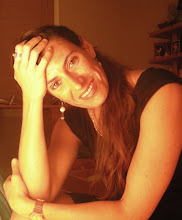 |
| Photo credit: AFP. From: http://www.bbc.co.uk/news/world-africa-12300285 |
I have not heard anything about the Kalahari Bushmen since then, and I have never been to southern Africa. But yesterday as I was driving home, a program came on the radio about the Basarwa Bushmen, who now live on the Central Kalahari Game Reserve in Botswana, the second largest game park in the world. Apparently, in the early 90's, a huge diamond reserve was found under the Kalahari Desert. The government of Botswana started trying to systematically force the Basarwa Bushmen off of their ancestral land, settling them in replacement camps that, with their chain link fences and row after row of identical houses, remind me eerily of the displaced people camps used to accommodate the thousands of Jews that were homeless after World War II. Apparently, two of the tactics used by the government of Botswana to force these peaceful people off their land were sealing off their well holes, and preventing them from hunting in the park -- effectively forcing them to either leave or die of starvation and dehydration. You can listen to the full program here.
The situation is deplorable. I had no idea it was going on, and was disgusted to be hearing another story about how greed for more wealth is leading a government to treat people so inhumanely. Fortunately, there was a good side to the story, in the form of Gordon Bennet, a British barrister who has been representing the Bushmen for the past few years. Mr. Bennet, in his radio interview, comes across as an interesting mix of upper British class and open-minded global concern for his fellow human beings. I was impressed by the fact that in today's world, we have an upper class British barrister defending the rights of some of the most materially poor people in the world. Whether or not the Bushmen survive this battle (and I sincerely hope that they do), the reality that people living nowhere near the Kalahari, and not directly affected by their plight, are standing up and taking action to defend them -- not, because it in any way benefits them, but because there is a rising recognition on a global scale that when one person's human rights are being denied, all of our human rights are being denied. Not until everyone has the freedom to live, eat and drink without persecution can any of us really enjoy living, eating and drinking freely.
The story explains that, in an exciting turn of events after a long, drawn out trial, Mr. Bennet and the Bushmen finally won the right for the tribe to return to their ancestral land, and to hunt and re-sink wells within the park. Many have already returned. Unfortunately, despite the ruling, the government is still repeatedly sending people to physically attack the Basarwa hunters when they find them out hunting for food for their community. Their fight to live happily and peacefully on their land is ongoing.
There is no happy ending to this story, but the ongoing support, year after year, from Mr. Bennet and others, is a clear indication to me of positive change in the world. That the Bushmen know that people all around the world are standing up and defending their right to live on their ancestral land is a tremendous step in the right direction for humanity, it seems to me. True, there are no easy answers, and of course the government of Botswana may well go on persecuting the Bushmen, but the relationships between the Bushmen and the people who are standing up for them is moving. It shows the recognition, at the deepest level, of shared humanity between people who are completely different from each other. It shows courage. It shows compassion and selflessness. And it shows the immense power of unity in the face of injustice. The fight may not be over, but there is something reassuring about knowing that the Bushmen are standing shoulder to shoulder with so many people all over the world as they continue fighting for their right to exist.













